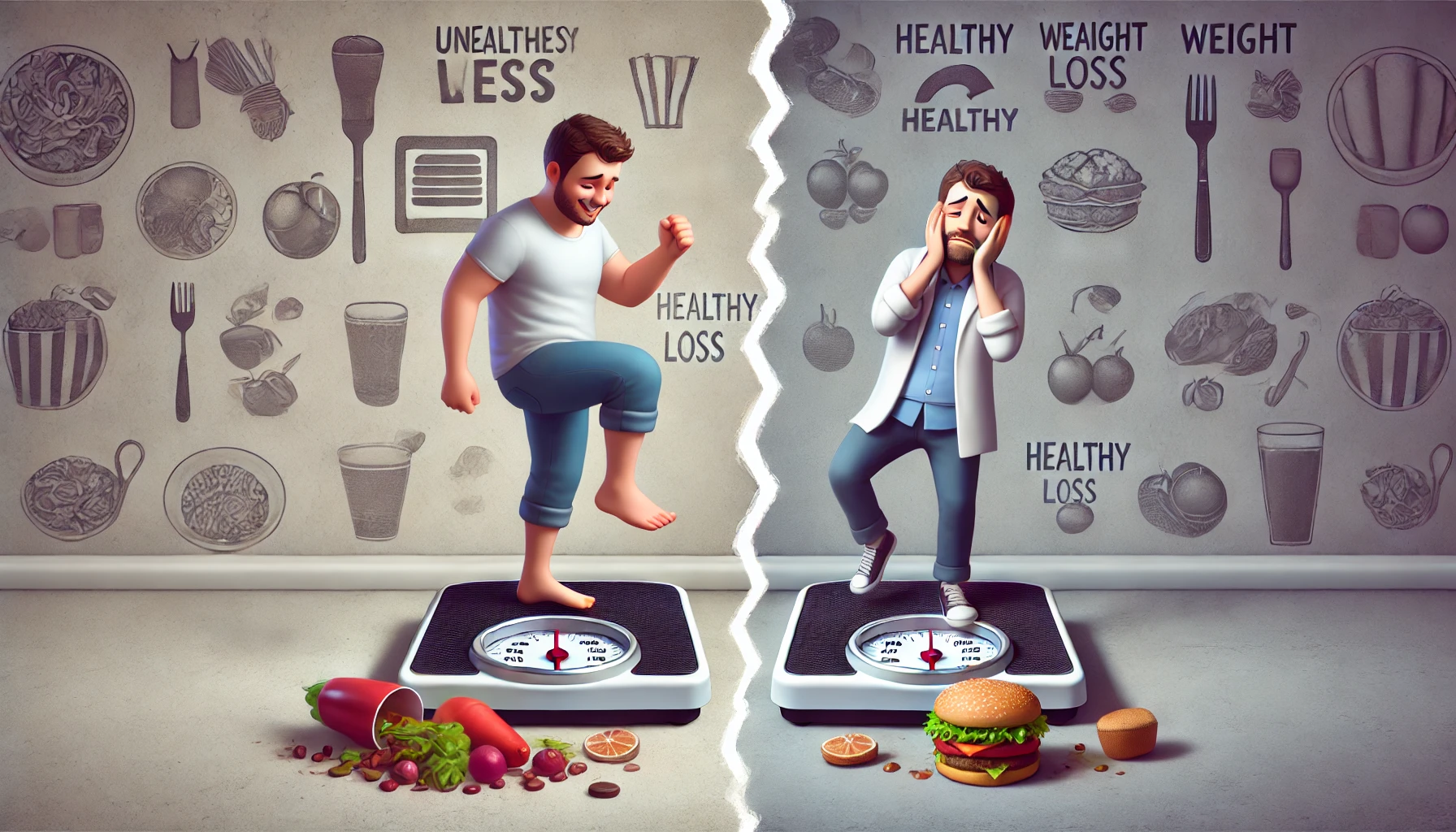Losing weight is a significant achievement, but maintaining it can be even more challenging. Many people experience the yo-yo effect, also known as weight cycling, where they lose weight only to regain it shortly after. This cycle can be frustrating and harmful to health. In this article, we’ll explore why the yo-yo effect happens and provide practical strategies to maintain a healthy weight after a diet.
What Is the Yo-Yo Effect?
The yo-yo effect occurs when a person repeatedly loses and regains weight due to extreme dieting and unsustainable eating habits. This cycle can lead to:
- Slower metabolism
- Loss of muscle mass
- Increased fat storage
- Emotional stress and frustration
- Higher risk of chronic diseases, such as diabetes and heart disease
Understanding the causes of the yo-yo effect is the first step toward preventing it.
Why Does the Yo-Yo Effect Happen?
1. Extreme Calorie Restriction
Many diets focus on rapid weight loss by drastically cutting calories. While this may lead to quick results, the body perceives it as starvation, slowing down metabolism to conserve energy. Once normal eating resumes, weight gain happens quickly.
2. Lack of Sustainable Eating Habits
If a diet is too restrictive and eliminates entire food groups, it becomes difficult to maintain in the long run. People often return to their old eating habits, leading to weight regain.
3. Loss of Muscle Mass
Rapid weight loss often leads to muscle loss. Since muscles help burn calories, losing them reduces metabolism, making it easier to gain fat once the diet ends.
4. Emotional Eating and Stress
Many people use food as a way to cope with stress, emotions, or boredom. After completing a diet, old emotional eating habits may return, leading to weight gain.
5. Lack of Physical Activity
Some weight-loss plans rely solely on diet without incorporating regular exercise. Without physical activity, maintaining weight loss becomes much harder.
How to Prevent the Yo-Yo Effect
1. Adopt a Sustainable Diet
Instead of following a strict or temporary diet, focus on long-term healthy eating habits. Your eating plan should include:
✅ Whole foods (fruits, vegetables, whole grains)
✅ Lean proteins (chicken, fish, tofu)
✅ Healthy fats (avocados, nuts, olive oil)
✅ Fiber-rich foods (legumes, seeds, oats)
Rather than completely cutting out foods you enjoy, try moderation. Balance is key to sustainability.
2. Prioritize Strength Training
Building and maintaining muscle is essential for keeping your metabolism active. Strength training helps:
💪 Preserve muscle mass during weight loss
🔥 Boost metabolism, allowing you to burn more calories
🏋️♂️ Prevent weight regain
Try incorporating weight lifting, bodyweight exercises, or resistance bands into your weekly routine.
3. Don’t Skip Meals
Skipping meals slows metabolism and can lead to overeating later in the day. Instead, aim for regular, balanced meals that keep your energy levels stable.
- Breakfast: Protein + healthy fats + fiber
- Lunch & Dinner: Lean protein + vegetables + whole grains
- Snacks: Nuts, yogurt, fruit, or protein shakes
4. Manage Stress and Sleep Well
Stress and poor sleep can trigger cravings for high-calorie, processed foods. Manage stress with:
🧘 Meditation or deep breathing
🚶♀️ Regular walks or physical activity
📖 Relaxing activities like reading
Aim for 7-9 hours of sleep per night to regulate hormones that control hunger and metabolism.
5. Monitor Your Weight Without Obsession
Instead of weighing yourself daily, track progress weekly and focus on:
✔ How your clothes fit
✔ Energy levels
✔ Muscle tone and strength
Consistency is more important than perfection!
6. Stay Hydrated
Drinking enough water helps control appetite and supports metabolism. Try to drink at least 2 liters (8 cups) of water per day. Sometimes, thirst is mistaken for hunger, leading to unnecessary snacking.
7. Set Realistic Goals
Avoid expecting overnight results. Instead of focusing only on weight, set goals like:
✅ Running a certain distance
✅ Lifting heavier weights
✅ Cooking more meals at home
Focusing on overall health and strength will make maintaining weight loss easier.
Final Thoughts
Preventing the yo-yo effect requires a sustainable approach to eating, exercise, and lifestyle. Instead of extreme dieting, focus on healthy habits that you can maintain for life. By prioritizing muscle maintenance, balanced nutrition, stress management, and hydration, you can keep the weight off and enjoy lasting health benefits.
Would you like more tips on maintaining a healthy lifestyle? Let me know what topic interests you next!

